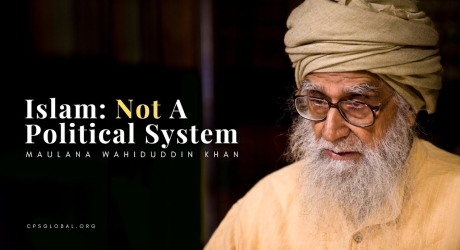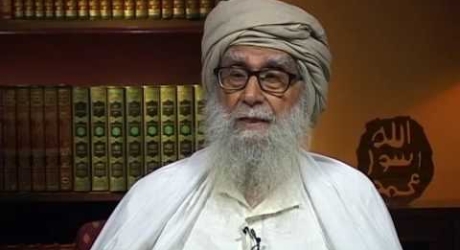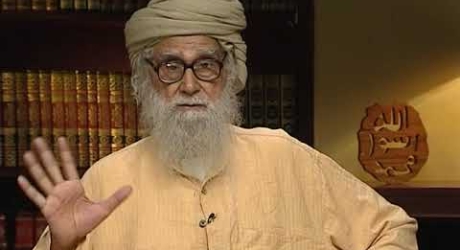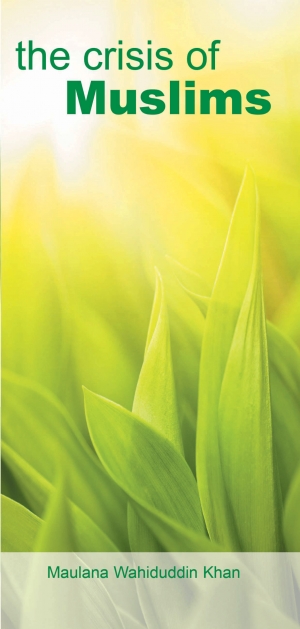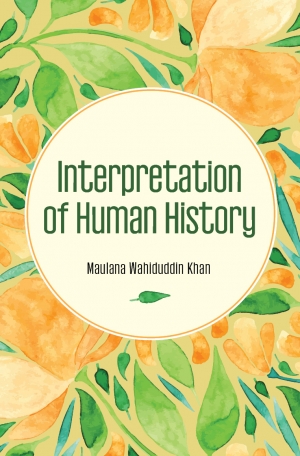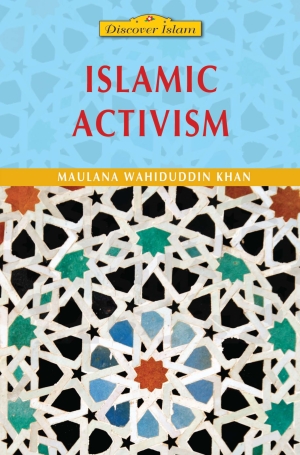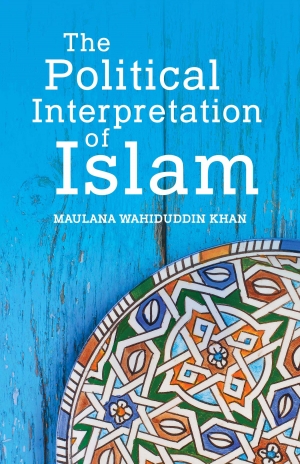Maulana Wahiduddin Khan explains that Islam is a religion of peace. It is being misinterpreted as a religion that sanctions violence. Certain Muslims becoming victims of this ‘political interpretation of Islam’ justify using violence and perpetrating acts like suicide bombings. According to this ideology, it is a Muslim’s bounden duty to establish the political system of Islam all over the world, even if it involves the use of force. The political ideology presents Quranic teachings that are the subject of self-following to be implemented on others by force. Maulana explains that this is a form of ghulu extremism. It is a gross misinterpretation of Islamic scriptures. The Quran says, “Do not go to excess in your religion.” (4:171) Extremism, being against the spirit of religion, culminates in confrontation, war and violence. Moderation, the opposite of extremism, is closely interlinked with peace.
Islam is a religion of peace, followed by one’s choice, not subject to enforcement. The material of Maulana Wahiduddin Khan places the concepts of Islam in their proper perspective. The only way to solve this problem is to present the Islamic ideology of peace to those Muslims engaged in violence based on the accurate interpretation of the Quran and Sunnah. It acts as a counter ideology and takes away the justification to perpetrate violence. Maulana Wahiduddin Khan and CPS members are re-engineering the minds of people. When people of extremist mindsets understand that Islam is a religion of peace that does not sanction violence, they leave violent activism on their own. Then they favour a peaceful course and strive towards endeavours like education and peaceful dawah.
Featured Articles
Featured Videos
Sub Themes
FAQs
Formation of a rule or government is not the goal of Islam, and therefore Islam does not prescribe any absolute model. The main concern of Islam is to convey to people the creation plan of God.
When it comes to electing a government, Islam does not endorse a specific model. We can understand this by observing how the first four caliphs in early Muslim history were selected. The first caliph, Abu Bakr, was directly elected by the people of Madinah because the Prophet Muhammad had let Abu Bakr lead the congregational prayers during his lifetime. When his health was failing, Abu Bakr nominated Umar to be the second caliph after him. The third caliph, Uthman, was selected by a board of six senior Companions of the Prophet. It is not clear how Ali, the fourth caliph, was elected—whether through nomination or selection. So, from this we learn that, in the early history of Islam, four different models for selection of the caliph were adopted.
In later times, a dynasty got established. For example, King Sulaiman (ibn Abd al-Malik) had a son who was not too competent. So, when the King fell ill, he was advised by his guide (alim) to write a deed for his successor. The King wrote a deed in favour of Umar ibn Abdul Aziz, who was the King’s distant relative. This paper was sealed and brought to Damascus after the king passed away. The King’s advisor first took an oath from all to agree to the deed of the King and then announced the name of their new King, who was Umar ibn Abdul Aziz. This was another model, in which the public was asked if they had faith in the King’s decision before the announcement of the name of the successor.
Islam, therefore, prescribes no single method. The matter is handled according to the situation and as per that which is acceptable to the contemporary majority.
The majority of the present Muslim world has disowned the Islamic State of Iraq and Syria (ISIS). In fact, this so-called State is neither a state nor is it Islamic: it is not a state because the United Nations has not recognized it as such, and it is un-Islamic because the majority of Muslims have disowned its claims. In Islam there is no concept of an “Islamic State”. This term itself has been innovated, as this phenomenon was not found in the early period of Islam, which is considered to be the authentic period of Islam.
How did the ISIS come into existence? It is a known fact that Abu Bakr al-Baghdadi is a self-proclaimed caliph. It is said that the Prophet of Islam established a state in Madinah after the Hijrah, or emigration to Madinah. However, the Prophet never proclaimed that he was the khalifa of Madinah, or the ruler of Madinah. According to books of seerah (Prophet’s biography), people of Madinah themselves gave this position to the Prophet at the time of Hijrah. History tells us that when the Prophet, accompanied by his Companion Abu Bakr, reached Madinah after migrating from Makkah, the people of Madinah welcomed him with these words: Intalaqa amirayn muta’ayn. (Musnad Ahmad, hadith no. 12234) That is, “You are our leader. We are ready to obey you.” This is the way in which a state came into existence in Madinah at the time of the Prophet.
The political leader in Islam is decided not through appointment, but by election. There is a well-known verse in the Quran in this regard: “Their affairs are decided by mutual consultation.” (42:38). It means that political leaders in Islam are elected through the democratic process.
It is said that Madinah was the first Islamic state under the leadership of Prophet Muhammad himself. But, the Prophet or his Companions never called it “Islamic State of Madinah.” There was no such term used at the time. Practically speaking, it was Madinah Administration, rather than the Islamic State of Madinah.
If we read the Quran, we will not find any such commandment: Aqim dawlat al-islam. That is, ‘Establish an Islamic State.’ Why is a commandment of this kind lacking in the Quran? The reason for this is given in a tradition of the Prophet: Kama takunu kazalika yu‘ammaru ‘alaykum. (Bayhaqi, Sho’ab ul Iman: 9/492/7006) That is, “As you are, so shall be your rulers.” It means that according to the Islamic concept, government emerges from the society, it is not imposed on the society from outside.
After Prophet Muhammad, Abu Bakr al-Siddiq (d. 634 AD) was the first political head in Islam. But, he was referred to as Khalifah al-Rasool (successor of the Prophet), or the successor of the Prophet, rather than khalifah al-muslimin. What was the method through which Abu Bakr reached this position? According to the history of early Islam, after the death of the Prophet, the Sahaba or Companions of the Prophet assembled in an open place called Saqifa Bani Saidah in Madinah. At this place all the people came together and open consultation took place between the Companions. Through the consensus of the Companions, Abu Bakr al-Siddiq became the head of the state of Madinah.
A self-proclaimed state or caliphate, such as ISIS, has no place in Islam, because it has no sanction in the Quran and the practice of the Prophet and his early companions. Such a state is totally against the Islamic spirit. According to the Quran and the Prophet’s practice, no person has the right to proclaim his sovereignty on his own. To declare someone as sovereign is solely people’s domain, and not that of any particular individual. The case of ISIS is certainly a case of illegal coup, rather than a lawful act of Islam.
Source: The Age of Peace
The problem is not of ISIS, but of our literature and media. A negative mindset was fostered among the youth by the Ulama and by the literature on the political interpretation of Islam. ISIS simply availed of the opportunity to recruit these negative Muslim youth.
Some problems do not have a short-term solution as people so desire. The real solutions to such problems can be had through long-term effort—by discussions, intellectual development and spreading of the right literature. We should work on a long-term peaceful solution as short-term planning or violence cannot work, because every act of violence perpetrates revenge.
Source: The Age of Peace
It is greed for political power which has always been the cause of war throughout history. However, Islam laid down the principle that the system of government would be based on mutual consultation. This command is expressed in these words in the Quran: Amruhum shura baynahum. That is, “Their affairs are settled by mutual consultation.” (42:38) This means that in Islam, governance is not imposed from outside. Rather, it emerges from within society. It is not a matter of imposition by anyone. This has been expressed in a tradition attributed to the Prophet in these words: “As you are, so will be your rulers.” (Musnad al-Shihab al-Quda’i, Hadith no. 577)
The reason for wars in the name of political power has always been a person’s or group’s desire to establish their rule in society by removing their rivals from power. This leads to wars between the two parties. But when the principle adopted is that political rule is not a matter of imposition, but is rather something which emerges from within society, the reasons for war are automatically eliminated.
If anyone has any ideas about the course politics should take, he or she has only one option, and that is, to peacefully disseminate his or her ideas. Instead of attempting to impose one’s ideas upon others, one has to wait until society willingly accepts them. The enforcement of political ideas is not an option for anyone.


